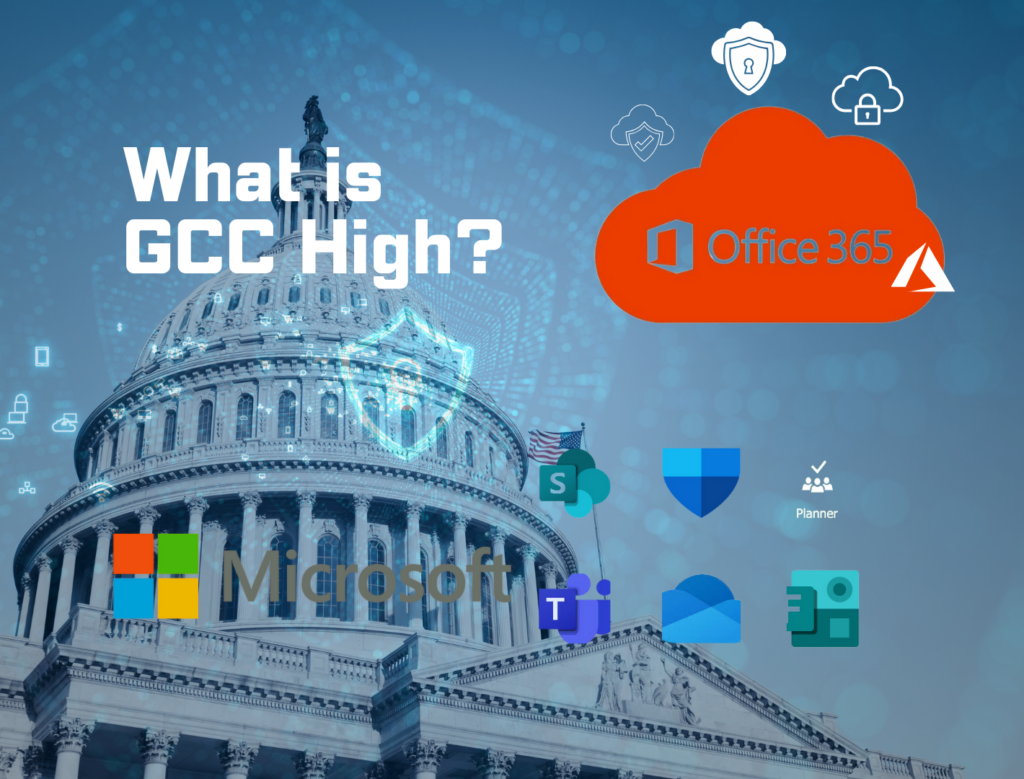CUI Compliance and Protection with Microsoft Security
Safeguard Sensitive Information with Cleared Systems' Expert Guidance
Ensuring compliance and robust protection of Controlled Unclassified Information (CUI) is of paramount importance for organizations that handle sensitive data. Microsoft Security, with its comprehensive suite of robust tools, provides a solid foundation for safeguarding your information against potential threats. The tools work in unison to prevent accidental or intentional data leaks, classify and label data, detect and respond to potential threats, and manage compliance with regulations. However, navigating the complexities of CUI handling can be challenging. This is where Cleared Systems comes into play. As experts in the field, we offer guidance on leveraging Microsoft Security to its fullest potential. We assess your organization’s current security posture, help deploy Microsoft Security tools and services, and provide ongoing support to ensure continued compliance. With our guidance and Microsoft Security’s robust tools, your organization can maximize CUI protection, providing peace of mind in the security of your sensitive data.
Understanding CUI
Controlled Unclassified Information refers to sensitive information that requires safeguarding under federal laws, regulations, and policies. Proper handling of CUI is essential to prevent unauthorized access, ensuring data security and compliance with regulatory requirements.
Microsoft Security for CUI Compliance
Microsoft Security provides a comprehensive suite of tools and services designed to safeguard sensitive data, making it an ideal solution for Controlled Unclassified Information (CUI) compliance. Here are some key features in more detail:
Data Loss Prevention (DLP): The DLP capabilities of Microsoft Security are designed to help identify, monitor, and protect sensitive information across various locations such as devices, apps, cloud services, and on-premises. It uses deep content analysis and a thorough understanding of sensitive information types to prevent accidental or intentional data leaks. This includes features like policy tips that educate your users about violations before sensitive data gets into the wrong hands.
Azure Information Protection (AIP): AIP is a cloud-based solution that enables organizations to discover, classify, and protect documents and emails by applying labels to content. These labels contain protection settings that help control access to the data, maintain compliance, and prevent data leakage. AIP also includes tracking and revocation features, allowing organizations to monitor what’s happening with shared data and revoke access if necessary.
Advanced Threat Protection (ATP): ATP is a unified platform designed to help organizations secure their enterprise by detecting and responding to advanced threats targeting sensitive data. It uses machine learning, behavioral analytics, and application-based intelligence to proactively protect against a wide range of cyberattacks. ATP also provides tools for threat investigation and remediation, giving security teams the information they need to respond quickly and effectively to incidents.
Compliance Manager: Compliance Manager is a feature in the Microsoft 365 compliance center designed to help organizations assess and manage their compliance with regulations related to CUI and other types of sensitive information. It provides insights into your compliance posture with a risk-based score, and offers recommendations for improving data protection controls. Compliance Manager also includes tools for tracking regulatory requirements and managing assessments, making it easier for organizations to maintain CUI compliance.
By leveraging these tools within Microsoft Security, organizations can create a robust security posture that aligns with CUI compliance requirements.
Cleared Systems' Expert Guidance
Cleared Systems’ experts offer a comprehensive approach to implementing Microsoft Security for CUI compliance:
Assessment: The first step involves a thorough assessment of your organization’s current security posture. We assess your systems to identify potential vulnerabilities and areas for improvement. The goal is to understand where your organization stands in terms of security and compliance, and what needs to be done to reach the desired state.
Implementation: Once the assessment is complete, the next step is the implementation of Microsoft Security tools and services. Cleared Systems’ experts will guide your organization through the deployment process, ensuring that all tools are correctly configured to provide comprehensive protection for your sensitive data. This includes setting up features like Data Loss Prevention (DLP), Azure Information Protection (AIP), Advanced Threat Protection (ATP), and Compliance Manager.
Ongoing Support: Implementing security measures is not a one-time task, but an ongoing process. Regulations and threats evolve over time, and your security measures need to adapt accordingly. Cleared Systems provides ongoing support to ensure continued compliance with CUI regulations. This includes regular check-ins, updates to security measures as needed, and assistance in adapting to new or updated regulations.
By following this process, Cleared Systems ensures that your organization is not only compliant with CUI regulations but also has a robust security posture to protect against potential threats.
The Benefits of Microsoft Security for CUI Compliance
Implementing Microsoft Security for Controlled Unclassified Information (CUI) compliance indeed offers several key benefits:
Enhanced Data Security: Microsoft Security’s robust suite of tools and features provide comprehensive protection for your sensitive information. From Data Loss Prevention (DLP) to Advanced Threat Protection (ATP), these features work together to safeguard your data from various threats.
Streamlined Compliance: Achieving and maintaining CUI compliance can be a complex process. Microsoft Security simplifies this process by providing tools like Compliance Manager, which helps assess and manage compliance with regulations, providing insights and recommendations for maintaining CUI compliance.
Scalability: Every organization is unique, with different sizes, industries, and needs. Microsoft Security can be tailored to meet these unique needs, making it a scalable solution that grows with your organization.
Cost-Effectiveness: Protecting sensitive information and ensuring compliance are crucial, but they shouldn’t break the bank. Microsoft Security provides a cost-effective solution by offering robust security features at a competitive price point.
By leveraging Microsoft Security for CUI compliance, organizations can enhance their data security, streamline compliance processes, scale according to their needs, and do so in a cost-effective manner.
Cleared Systems specializes in helping organizations ensure compliance and protection using CUI with Microsoft Security. With our expert guidance, you can confidently safeguard your sensitive information while maintaining regulatory compliance. Get in touch with our team today to learn more about how we can help your organization achieve CUI compliance with Microsoft Security.
Contact Cleared Systems today to discuss how we can assist you with CUI compliance and protection using Microsoft Security.
Share in Social Media
See More Case Studies

Securing Defense Contracts: A DFARS 252.204-7012 Compliance Case Study
Discover how Cleared Systems helped a Federal Contractor successfully achieve DFARS 252.204-7012 compliance by strengthening its cybersecurity posture, giving it a competitive edge when bidding for DoD Contracts.

What is GCC High? For ITAR & CMMC 2.0
Microsoft 365 Government Community Cloud (GCC) High is a specialized cloud solution tailored for U.S. federal, state, local, tribal, and territorial government organizations, as well as for contractors who hold or process data subject to specific security regulations. In this article, we will explore the features, benefits, and differences between Microsoft 365 GCC High and other Office 365 offerings.

Is AutoCAD ITAR Compliant? A Comprehensive Guide for Defense Manufacturers
Defense contractors and manufacturers working with sensitive military technologies face a critical question when selecting computer-aided design software: Is AutoCAD ITAR compliant? This question becomes

How to Get Help in Windows: Guide to Security and Compliance Support
In today’s digital landscape, ensuring your computer systems are secure and compliant with industry regulations is essential for both businesses and individuals. Windows, as one

Microsoft Copilot for GCC High: Enhancing Security and Compliance
In today’s fast-evolving digital landscape, organizations that handle sensitive data, particularly those in government sectors or defense contractors, face growing pressure to maintain strict security
Partner with Us for Compliance & Protection
We’re happy to answer any questions you may have and help you determine which of our services best fit your needs.
Your benefits:
- Client-oriented
- Security
- Compliance
- Peace of mind
- Efficiency
- Trust
What happens next?
Schedule an initial meeting
Arrange a discovery and assessment call
Tailor a proposal and solution
